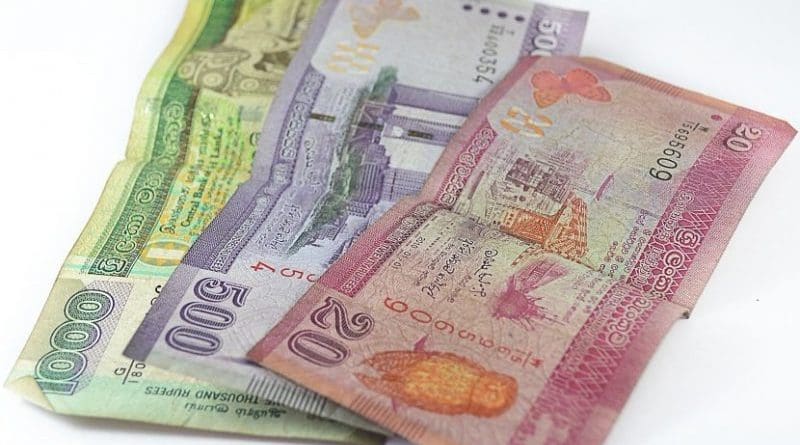IMF Sets Tough Debt Sustainability Goals For Sri Lanka – Analysis
India offers debt restructuring ahead of all others
The International Monetary Fund (IMF) has set debt sustainability goals for Sri Lanka for the latter to receive the IMF’s Extended Funding Facility (EFF) and get its creditors to restructure their debts.
On April 12, 2022, Sri Lanka declared that it was defaulting, when it’s overall loan external burden was US$ 50 billion.
It is understood that the IMF’s expectations from Sri Lanka in regard to the restructuring of its debts are: (1) reduction of the ratio of public debt to GDP to below 95% by 2032; (2) bringing the annual gross financing needs to below 13% of GDP on an average between 2027-2032; (3) scaling down the annual foreign currency debt service to below 4. 5 % of GDP every year between 2027-2032; (4) closing its external financing gap.
Reuters reported on Wednesday that in a letter to the IMF chief Kristalina Georgieva dated January 16, an Indian Finance Ministry official, Rajat Kumar Mishra, had said that India will extend its support to the IMF’s plan and give “financial assurance” (which is IMF-speak for “debt restructuring.”)
Reuters quoted the Indian official as saying: “We hereby confirm our strong support for Sri Lanka’s prospective EFF-supported program and commit to supporting Sri Lanka with financing/ debt relief consistent with restoring Sri Lanka’s public debt sustainability under the IMF-supported program, and ensuring that the program is fully financed as projected by IMF staff. This financing/ debt relief will be provided by Export-Import Bank of India.”
India has also promised to continuing its talks with the Sri Lankan government along with the Paris Club (of creditors) on a medium-to-long term debt management through maturity extension and interest rate reduction or any other financial means that would provide financing or debt relief.
The financing or debt relief provided by the Export-Import Bank of India will be consistent with restoring debt sustainability under the IMF-supported program, India has said. The IMF’s debt sustainability assessment will be underpinned by the program targets stated earlier in the story.
Sri Lanka owes US$1 billion to India.
Sri Lanka’s Job
However, India has made it clear that Sri Lanka will have to seek equitable debt treatments from all commercial creditors and other official bilateral creditors, as well as adequate financing contributions from the multilateral development banks. India will support Sri Lanka’s efforts in this direction. India will keep having in-depth discussions with the Sri Lankan authorities, the IMF and the Paris Club of creditors.
It is now up to Sri Lanka to mull over the points made by the IMF and India and take necessary action. Debt restructuring and the IMF’s conditions will be among the major items on the agenda of the talks between the Indian Foreign Minister Dr.S.Jaishankar and the Sri Lankan President Ranil Wickremesinghe during Jaishankar’s two-day visit to Colombo beginning on January 19.
Other Creditors
Given the Indian moves, Japan is expected to follow suit as India and Japan are allies vis-a-vis Sri Lanka. But China is problematic because Beijing likes to act independently, based on its own economic and financial calculations which clash with India’s and Japan’s.
However, a visiting high-level delegation from China’s Communist Party led by the Vice Minister of the International Department, Chen Zhou, told Sri Lankan Prime Minister Dinesh Gunawardena recently that Sri Lanka would have “some good news soon” with regard to debt restructuring.
Sri Lanka owes US$7 billion to China.
The United States comes into the picture because most of Sri Lanka’s private creditors are from the US. These private creditors own almost 40% of Sri Lanka’s external debt stock, mostly in the form of international sovereign bonds.
The private creditors also get higher interest rates on the basis of risk in lending to Sri Lanka. They receive more than 50% of external debt repayments, according to economists. These private lenders pose a problem because they are generally averse to restructuring their debt. One US lender went to court immediately after Sri Lanka defaulted in April 2022.

